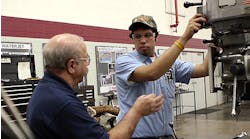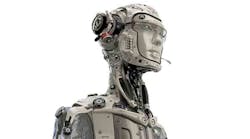Anyone under 25 years old may have trouble remembering the time when Microsoft founder Bill Gates was the celebrity business figure that Elon Musk is today: one who’s very name would sell books/increase web traffic, according to the circumstances of the age. After Gates but before Musk, Steve Jobs filled that role, and all the time these worthies were offering perspective and guidance on the tech trends of their times there has been Stephen Hawking, the physicist/theorist with an extraordinary ability to communicate the complexity of the physical universe and how it shapes and inhabits human understanding. Modern society seems to want to have a genius or two on call, to guide and advise us through the ethical complexities of human life.
This is newly important because Gates, Musk, and Hawking each have lately warned about the dangers of artificial intelligence. “First, the machines will do a lot of jobs for us and not be super intelligent,” Gates told an online audience. “That should be positive if we manage it well. A few decades after that though, the intelligence is strong enough to be a concern. I agree with Elon Musk and some others on this and don't understand why some people are not concerned.”
The under-25 crowd may not understand why the role of automation is such an obsession for the middle-aged set, though they may begin to appreciate it in terms of their employment opportunities. In the metalcasting industry, and across manufacturing, the value of automation increases with every financial statement: robotic devices handle products and machinery more reliably and safely than humans do. More than that, they introduce none of the liabilities that human workers bring to an organization — the physical and emotional needs that in various ways add to the cost of employing a worker. That’s obvious from the fact that between 2008 and 2013, total U.S. manufacturing employment fell by 1.7 million, or about 14%. About 1 million of those workers, or 60% of the total, were production workers. Only about 300,000 of the jobs lost, or 18% of the total, were management or clerical workers.
This trend cannot be reversed, in my opinion, because from the employers’ perspective the link between employment and productivity is almost entirely disconnected. It’s much more cost-effective to assign more work to current staff, or subcontract, or automate, to achieve the productivity that will improve revenues.
So, it makes sense to try to understand better how automation is inhabiting the workplace, at the very least so that we can adapt ourselves to the reality, or even find better ways to maintain the value of humanity there.
To be sure, the most profound effect of automation has been as a replacement for manual skills, tasks that require strength, repetition, and in manufacturing those that risk safety. Lately, we’ve seen that robots and automated systems are gaining more ability to perform tasks that require perception or evaluation.
What advantages remain for human workers are found in functions that require complex interactions, e.g., sales, customer service, supervision. This is not just because machines have not proven such abilities (yet) but because people prefer to communicate with other people. This may be extended to conclude that we will enhance our human value if we can work well with automated or computerized processes — meaning not simply pushing buttons to activate processes, but overseeing workflows and sharing relevant information with others. Humans can grow in intelligence by observing automation at work, and interacting with it.
Finally, there is the so-far unique human ability to alternate tasks, adjust priorities, and reassign resources as required for a specific task — in short, to be flexible. Machines are fixed-cost investments, and largely fixed in their functionality. Manufacturers that choose to drive their growth strategies with automation will have to rediscover that perception, supervision, and interpersonal skills continue to have value, in short that we have much to learn about our place in this world.









